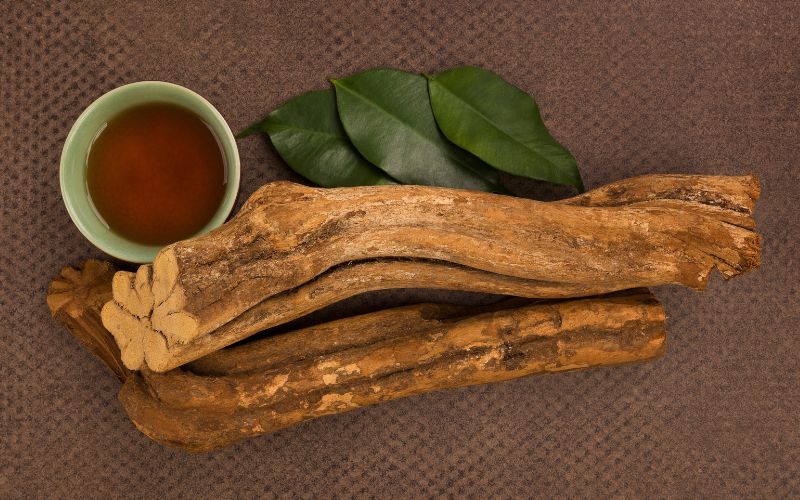The Church of the Eagle and the Condor and the U.S. government have reached a settlement allowing the church to use ayahuasca as a sacrament in its religious ceremonies.
In June 2022, the Phoenix-based church filed a lawsuit against the Drug Enforcement Administration, U.S. Customs and Border Protection and the Department of Homeland Security. For several years leading up to the filing of the complaint, federal agents had been confiscating shipments of ayahuasca intended for ceremonial practices and had threatened the group with prosecution.
A settlement agreement reached earlier this month allows the Church of the Eagle and the Condor (CEC) “to import, receive, manufacture, distribute, transport, securely store and dispose of ayahuasca solely for CEC’s religious purposes.”
The church’s designated “ayahuasqueros” – Joseph Tafur and Benjaman Sullivan – “will be responsible for the importation, receipt, secured storage, manufacture, distribution, disposal and all applicable recordkeeping requirements,” per the terms of the settlement.
The church is prohibited from using ayahuasca for “non-religious purposes, including but not limited to recreational purposes.”
“CEC will import ayahuasca in concentrated paste form or in liquid form,” the settlement agreement states. “Upon receipt, CEC will combine the ayahuasca paste with water to manufacture ayahuasca tea for sacramental uses.”
The agreement also outlines requirements for health-screening and intake procedures; secure storage of ayahuasca; careful recordkeeping regarding importation, storage and distribution; and notification of ports of entry.
In a news release, the Church of the Eagle and the Condor asserted that it is “the first non-Christian church to receive protection for its spiritual practices regarding ayahuasca.”
“This settlement reaffirms our right to practice our spirituality as we have always known,” said Belinda Eriacho, who is listed as co-secretary and co-treasurer on the church’s website. “It is a recognition by the U.S. government and an important milestone in honoring and validating indigenous belief systems. Prior to contact, indigenous peoples have used sacred plant medicines for healing and ceremony since time immemorial. Our relationship with our plant relatives has always been an extension of our worldview. This has been interrupted by the imposition of governmental policies that have suppressed our way of life and demonstrated religious intolerance.
“This settlement is a significant step and acknowledgement of our spiritual beliefs as original peoples of the Americas. We are grateful for the support of our donors, legal team, community and Grandmother Ayahuasca. The Church is committed to our mission of spiritual unity of all people with the Creator.”
On its website, the church describes itself as “a spiritual community founded in 2018 upon the ancient wisdoms of the first Americans, and the Prophecy of the Eagle and the Condor.” Among other things, the church promotes “the unification of all people from around Mother Earth, and the restoration of a harmonious relationship with nature.”
”Ayahuasca ceremony is an essential sacrament for our church,” said Tafur, who is the church’s president and co-treasurer. “Our ceremony is rooted in the Shipibo Amazonian tradition, which has been passed down by countless generations. … We are grateful for the support of everyone that has helped us get this far, including our legal team, our community, those that donated to our legal process, those that prayed for us and those that stood by us. Our ancestral practice will continue to support the community and nourish our holistic well-being.”
Ayahuasca is a hallucinogenic decoction combining the bark of the Banisteriopsis caapi vine and leaves of the Psychotria viridis bush (which contain DMT). Indigenous shamans in South America have used ayahuasca for hundreds of years to facilitate religious and healing rituals and other mystical practices.
Ayahuasca is illegal in the United States because its main active ingredient – DMT – is considered a Schedule 1 controlled substance.
The settlement agreement grants the Church of the Eagle and the Condor a religious exemption from the U.S. Controlled Substances Act under the Religious Freedom Restoration Act. The settlement bodes well for other religious groups that use controlled substances as sacraments in their ceremonies, according to the church, which also asserts that this is the first time in history a church’s right to import and share its sacrament has been secured without going to trial.
“This has positive implications and paves the way for other indigenous-based and syncretic religions,” the church said in a statement. “ … This settlement affirms legitimacy of indigenous spiritual traditions within the U.S. legal system by recognizing the CEC as a bona fide religious organization.”

